Exporting organic products from India, especially vegetables, cereals, and other organic goods, is a thriving opportunity for Indian exporters targeting the US market. Organic products—those grown without synthetic chemicals, genetically modified organisms (GMOs), or harmful additives—are in high demand globally.
A study suggests “ India’s organic food export market has grown to an estimated $1.04 billion in 2023”. For exporters, ensuring your products meet these strict organic standards isn’t just a selling point; it’s a necessity. Certification plays a critical role in building trust with buyers and complying with regulations. In India, recognized certification bodies such as PGS-India and NPOP (National Programme for Organic Production) provide the authenticity stamp you need to access international markets.
This article walks you through the essentials of exporting organic vegetables, cereals, and related products to the US. From understanding certification processes to market dynamics, it’s designed to help you navigate the logistics with confidence and capitalize on the growing demand for organic produce.
Let’s get started!
Legal Requirements for Exporting Organic Products
Exporting organic products from India involves adhering to a comprehensive set of legal and regulatory requirements that ensure compliance with both domestic and international standards. These measures help maintain the integrity of your organic products and ensure their acceptance in global markets like the USA. Here’s what you need to know:
1. Organic Certification
Certification under the National Programme for Organic Production (NPOP) is mandatory for organic exports. This certification guarantees that your products meet international organic standards. For US-bound exports, the NPOP certification is recognized under the USDA Organic standards, making it easier to access the American market.
2. FSSAI Registration and Licensing
Exporters in the food industry must comply with the Food Safety and Standards Authority of India (FSSAI) regulations. FSSAI ensures that food products, including organic goods, meet stringent safety and quality standards.
Types of FSSAI Licenses Based on Turnover:
- Basic Registration: For businesses with an annual turnover of up to ₹12 lakh.
- State License: Required for businesses with an annual turnover between ₹12 lakh and ₹20 crore.
- Central License: Mandatory for businesses with an annual turnover exceeding ₹20 crore or those involved in exports.
Exporters must hold a Central FSSAI License since it is compulsory for food businesses engaged in international trade.
Key FSSAI Compliance Requirements:
- Testing: Products must pass FSSAI-approved laboratory tests to ensure they meet safety standards.
- Packaging and Labeling: Follow FSSAI guidelines, including proper labeling that highlights organic certifications, license numbers, and compliance details.
3. Export Documentation
Apart from standard export documents like the bill of lading, packing list, and certificate of origin, you’ll need:
- Organic Transaction Certificate: To verify the organic nature of the shipment.
- FSSAI Compliance Certificate: To confirm that the product adheres to food safety regulations.
4. Phytosanitary Certification
This certificate, issued by India’s agricultural authorities, ensures that your organic produce is pest-free and meets the importing country’s phytosanitary standards. It is essential for exporting agricultural goods like vegetables and cereals.
5. Compliance with Target Market Standards
If exporting to the USA, your products must meet USDA Organic standards. This may involve additional checks to verify compliance with US regulations.
6. Labeling Regulations
Ensure your product labels meet both Indian and international standards. Include:
- Certification logos (e.g., USDA Organic, NPOP).
- FSSAI license number and logo.
- Batch details, ingredients, and nutritional information (if applicable).
7. Customs and Import Duties
Collaborate with customs agents to ensure smooth clearance. Accurate documentation, including FSSAI and organic certifications, is critical to avoid delays or penalties.
By adhering to these requirements, you not only meet regulatory expectations but also enhance the credibility of your products, making them more appealing to international buyers.
Export Procedures for Organic Products
Exporting organic products from India involves a well-structured process to ensure compliance with regulatory requirements and successful entry into global markets. Here’s a step-by-step guide to the key export procedures:
1. Registration of Legal Business Status and Infrastructure Setup
Before exporting organic products, you need to establish your business as a legal entity.
- Business Registration: Register your business under the appropriate legal structure (e.g., sole proprietorship, partnership, or private limited company). This ensures your business has a recognized legal status.
- Infrastructure Setup: Ensure your business has the necessary infrastructure to handle organic products. This includes:
- Certified organic farms or suppliers.
- Proper storage and transportation facilities adhering to organic standards.
- A robust supply chain to maintain product quality and certification integrity.
- FSSAI Registration: Obtain the relevant FSSAI license for food exports, which is mandatory for organic food products.
2. Obtainment of Import and Export Code (IEC) through DGFT
The Import Export Code (IEC) is a mandatory requirement for any business engaged in international trade. It is issued by the Directorate General of Foreign Trade (DGFT).
- Application Process: Apply for the IEC online through the DGFT portal. You’ll need:
- PAN Card and Aadhaar details.
- Business registration documents.
- Bank account details linked to the business.
- Purpose of IEC: The IEC is necessary for clearing goods through customs, receiving foreign currency payments, and engaging with foreign buyers.
3. Finding and Negotiating with Foreign Buyers
Identifying the right buyers and building strong relationships are critical for exporting organic products.
- Market Research: Conduct thorough research to identify countries and buyers with high demand for Indian organic products, especially in regions like the USA.
- Platforms and Networks:
- Register on export promotion platforms like APEDA (Agricultural and Processed Food Products Export Development Authority) and trade portals like IndiaMart and Alibaba.
- Participate in trade fairs, exhibitions, and virtual marketplaces to showcase your products.
- Negotiation and Contracts:
- Initiate communication with potential buyers and present your product certifications, quality standards, and pricing.
- Negotiate terms of trade, including pricing, payment terms, shipping logistics, and delivery schedules. Ensure clear documentation of agreements in legally binding contracts.
Exporting organic vegetables to the USA requires meticulous planning and execution, and that’s where Intoglo steps in as your trusted logistics partner. From seamless transport to hassle-free customs clearance, Intoglo ensures your organic exports reach their destination smoothly and on time.
Intoglo is your one-stop logistics partner from India to the USA. With Intoglo, you get:
- End-to-End Services: From origin pickup and customs clearance to ocean freight and last-mile delivery.
- Expert Customs Support: Pre-screening, customs entry, and smooth clearance at both ends.
- Next-Gen Warehousing: Over 50 warehouses in the USA with transloading, repacking, and long-term storage options.
- Transparent Pricing: Clear cost breakdowns and real-time updates on WhatsApp.
- Fast and Reliable Delivery: PAN-India pickups within 24 hours and a direct trucking network in the USA.
- PAN-India Pickups in 24 Hours: Quick pickups across the country to keep your shipments on schedule.
- Contracts with Major Shipping Lines: Access premium shipping options with multiple routing choices and special contract rates.
- Expert Customs Brokerage: Pre-screening, customs entry before shipment arrival, and streamlined clearance processes.
Since we have understood the export procedure, now let’s take care how the labelling process works.
Labeling Organic Products
Proper labeling of organic products is essential for compliance with export regulations and for establishing trust with buyers in global markets. India’s National Programme for Organic Production (NPOP) provides detailed guidelines on labeling organic products, ensuring transparency and adherence to international standards. Here’s what you need to know:
1. Section 3 of NPOP for Product Labeling
The NPOP outlines specific requirements for labeling organic products, ensuring clarity and authenticity. Key details include:
- Certification Information: The label must include the name of the certification body that verified the product’s organic status.
- Organic Logo: Use of the NPOP organic logo is mandatory for certified products.
- Product Description: Clearly state that the product is “organic” and include details such as the product name and type.
- Traceability: Include batch/lot numbers, allowing for traceability throughout the supply chain.
- Exporter Details: Labels should display the name and address of the exporter or manufacturer.
- Country of Origin: Mention “Product of India” for exports.
2. Types of Organic Labels Based on Ingredient Percentages
Organic product labels differ based on the percentage of organic ingredients in the product. The NPOP categorizes these as follows:
- 100% Organic: Products entirely made with certified organic ingredients and processes. The label must state “100% Organic” and can feature the NPOP organic logo.
- Organic: Products with at least 95% organic ingredients. These can also display the NPOP organic logo and must clearly identify the remaining non-organic components.
- Made with Organic Ingredients: Products containing 70%-95% organic ingredients. Labels must specify the percentage of organic content and list the non-organic ingredients.
- Less than 70% Organic Ingredients: For products with less than 70% organic content, the term “organic” cannot appear on the primary display. Organic ingredients can only be listed in the ingredients section.
3. Labeling Exclusions
Certain elements are strictly prohibited or must be explicitly addressed on organic product labels to ensure transparency:
- No Genetically Engineered (GE) or Genetically Modified (GM) Components:
- Organic products must not contain GE or GM organisms or derivatives.
- Labels must explicitly exclude GM content to reassure buyers of compliance.
- Clear Ingredient Listing:
- All ingredients, organic and non-organic, must be listed with their respective percentages.
- Any additives or preservatives used should be clearly disclosed.
Additional Labeling Best Practices:
- Ensure that product labels comply with the destination country’s specific organic labeling standards (e.g., USDA Organic for the USA).
- Include clear storage and usage instructions if applicable.
- Avoid vague terms like “natural” or “eco-friendly,” which can confuse buyers and undermine trust.
By adhering to these labeling parameters, you ensure compliance with NPOP and international standards, making your organic products export-ready while building trust and credibility with overseas buyers.
International Guidelines and Standards for Exporting Organic Products
Exporting organic products successfully requires understanding and adhering to international guidelines and regional standards that govern the organic status of products. These standards ensure consistency, quality, and authenticity, helping exporters meet the requirements of buyers across different countries. Here’s an overview of the key international and regional standards to keep in mind:
1. Role of International Guidelines
The International Federation of Organic Agriculture Movements (IFOAM) plays a pivotal role in shaping global organic standards.
- IFOAM’s Mission: IFOAM works to harmonize organic regulations and promote fair trade practices worldwide. It establishes frameworks that guide organic farming, processing, certification, and trade.
- IFOAM Basic Standards (IBS): These standards act as a benchmark for national and regional organic regulations, ensuring a common understanding of organic principles globally.
- Impact on Exporters: By aligning with IFOAM standards, exporters gain credibility and can ensure their products are more readily accepted across multiple markets. IFOAM membership and compliance can also open doors to new partnerships with international buyers.
2. Understanding Regional Standards
Different regions have specific standards and certification requirements for organic products. Exporters must ensure compliance with these regulations to access global markets:
a. European Union (EU) Standards
- The EU has stringent organic standards governed by EU Regulation (EC) No. 2018/848.
- Key Requirements:
- Products must be certified by an EU-approved certification body.
- Labels must display the EU organic logo and certifier’s code number.
- Traceability and documentation are critical for compliance.
b. United States (US) Standards
- Governed by the USDA Organic Standards, overseen by the National Organic Program (NOP).
- Key Requirements:
- Products must be certified by USDA-accredited certifying agents.
- The USDA Organic seal can only be used on products with at least 95% organic content.
- Products must comply with detailed labeling and ingredient requirements.
c. Canada
- Canada follows the Canadian Organic Standards (COS) regulated by the Canada Organic Regime (COR).
- Key Requirements:
- Certification by a COR-recognized certifier is mandatory.
- Labels must display the Canada Organic logo for products with at least 95% organic content.
- Equivalency arrangements with NPOP make it easier for Indian exporters to access the Canadian market.
d. Japan
- Japan’s organic products are regulated under the Japanese Agricultural Standards (JAS).
- Key Requirements:
- Certification by a JAS-accredited certifier is required.
- Only JAS-certified products can bear the JAS organic logo.
- The NPOP-JAS equivalence agreement simplifies the process for Indian exporters.
Benefits of Adhering to International Guidelines and Standards
- Market Access: Compliance with regional standards ensures entry into key markets like the EU, US, Canada, and Japan.
- Credibility: Certifications aligned with international standards enhance buyer confidence in your products.
- Regulatory Clarity: Following established guidelines minimizes trade barriers and customs issues.
By understanding and complying with international guidelines like IFOAM and regional standards, you position your organic products for success in global markets, ensuring smooth operations and sustainable growth.
Market-Specific Import Requirements for Organic Products
Exporting organic products involves meeting stringent import requirements in the target markets to ensure product safety, quality, and compliance. Each market, such as the USA, EU, Canada, and others, enforces its own set of regulations, with particular attention to agricultural health and chemical safety. Below are two critical aspects to address:
1. Compliance with Phytosanitary Certification and Quality Standards
Phytosanitary certification is mandatory for exporting agricultural products, including organic goods, to prevent the spread of pests and diseases. This certification is issued by the plant quarantine authority in India, verifying that the shipment meets the importing country’s plant health standards.
Key Points to Note:
- Inspection Process: Organic products must be inspected for pests, diseases, and any prohibited contaminants before certification is issued.
- Documentation: The phytosanitary certificate must accompany the shipment, ensuring hassle-free customs clearance.
- Country-Specific Standards: Different markets have unique phytosanitary requirements. For example, the USA and EU may demand additional treatment protocols or declarations.
Quality Standards
Organic products must adhere to the quality standards of the destination country. These may include:
- Size, Color, and Texture: For products like organic vegetables and cereals, uniformity in appearance is often a key requirement.
- Organic Integrity: Maintaining the organic nature of the product during processing, packaging, and transport is crucial to meet the quality expectations of international buyers.
2. Understanding Pesticide and Contaminant Level Checks
Exporting organic products requires compliance with strict regulations on pesticide residues and contaminants to ensure food safety.
Pesticide Residue Levels
- Organic products are expected to be free of synthetic pesticides. However, trace residues from environmental exposure may still occur.
- Markets like the EU, USA, and Japan have clearly defined Maximum Residue Limits (MRLs) for various substances.
- EU: Follows stringent MRLs under the General Food Law.
- USA: Regulates residue levels under the USDA Organic Program and FDA guidelines.
- Japan: Has zero-tolerance policies for specific pesticides under the JAS framework.
- It is critical to test products in accredited laboratories to ensure compliance before export.
Contaminant Levels
- Beyond pesticides, organic exports are scrutinized for heavy metals, mycotoxins, and microbiological contaminants (like Salmonella or E. coli).
- Regular testing for these contaminants is essential to meet market-specific requirements.
- Contaminants like aflatoxins in cereals or heavy metals in vegetables can result in shipment rejection if levels exceed permissible limits.
Conclusion
Exporting organic vegetables, cereals, and other products from India to global markets, particularly the USA, offers tremendous growth potential. Maintaining high-quality standards, securing the right certifications, and adhering to health and phytosanitary requirements are crucial for building trust with international buyers and ensuring smooth operations. With proper preparation and compliance, the global organic market can become a sustainable and profitable avenue for your business.
Simplify your logistics journey with Intoglo, a leading door-to-door cross-border logistics provider specializing in the India-to-USA trade lane. Our key features include:
- Direct coordination with shipping lines, truckers, and customs brokers for seamless shipping.
- Instant rates for full container loads on the India-to-USA route.
- A network of over 50 warehouses across multiple U.S. locations.
- In-house compliance pre-screening and customs bond services.
- AI-powered HTS code scanner for quick product classification.
- Dedicated teams in India and USA time zones for hassle-free communication.
With years of expertise and a proven track record of serving over 200 clients, including MSMEs, D2C brands, and large enterprises, Intoglo is your reliable partner for stress-free global logistics.


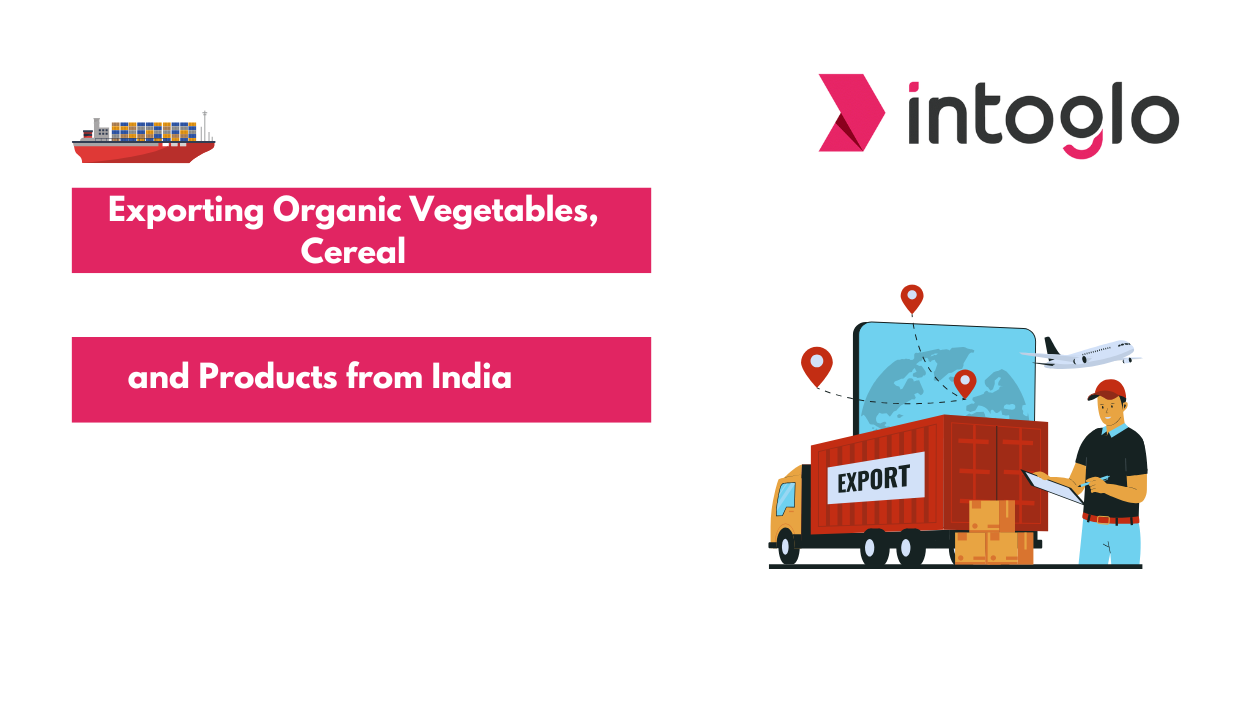

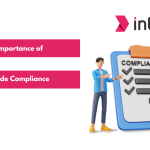
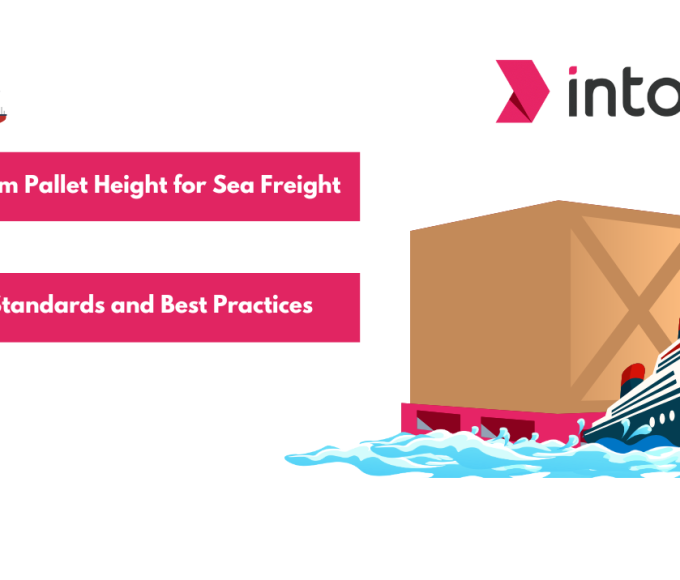

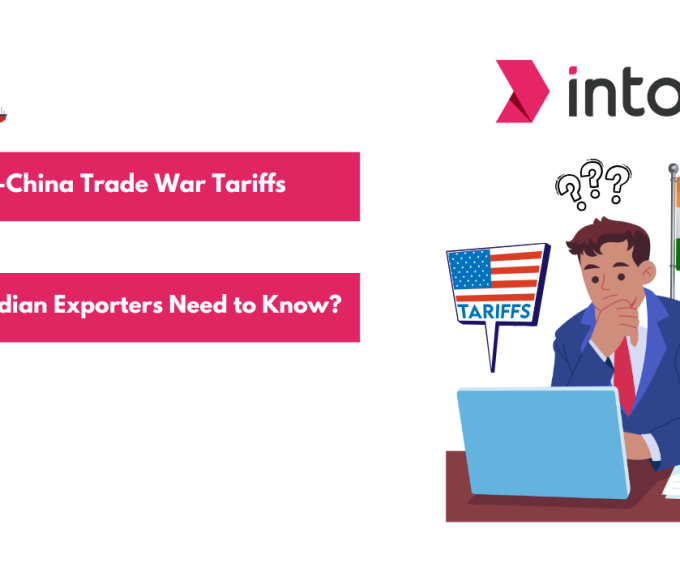
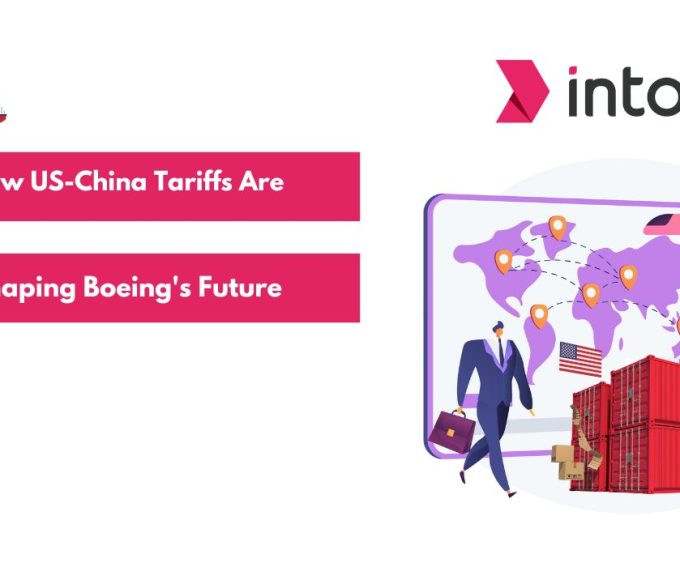
Leave a comment